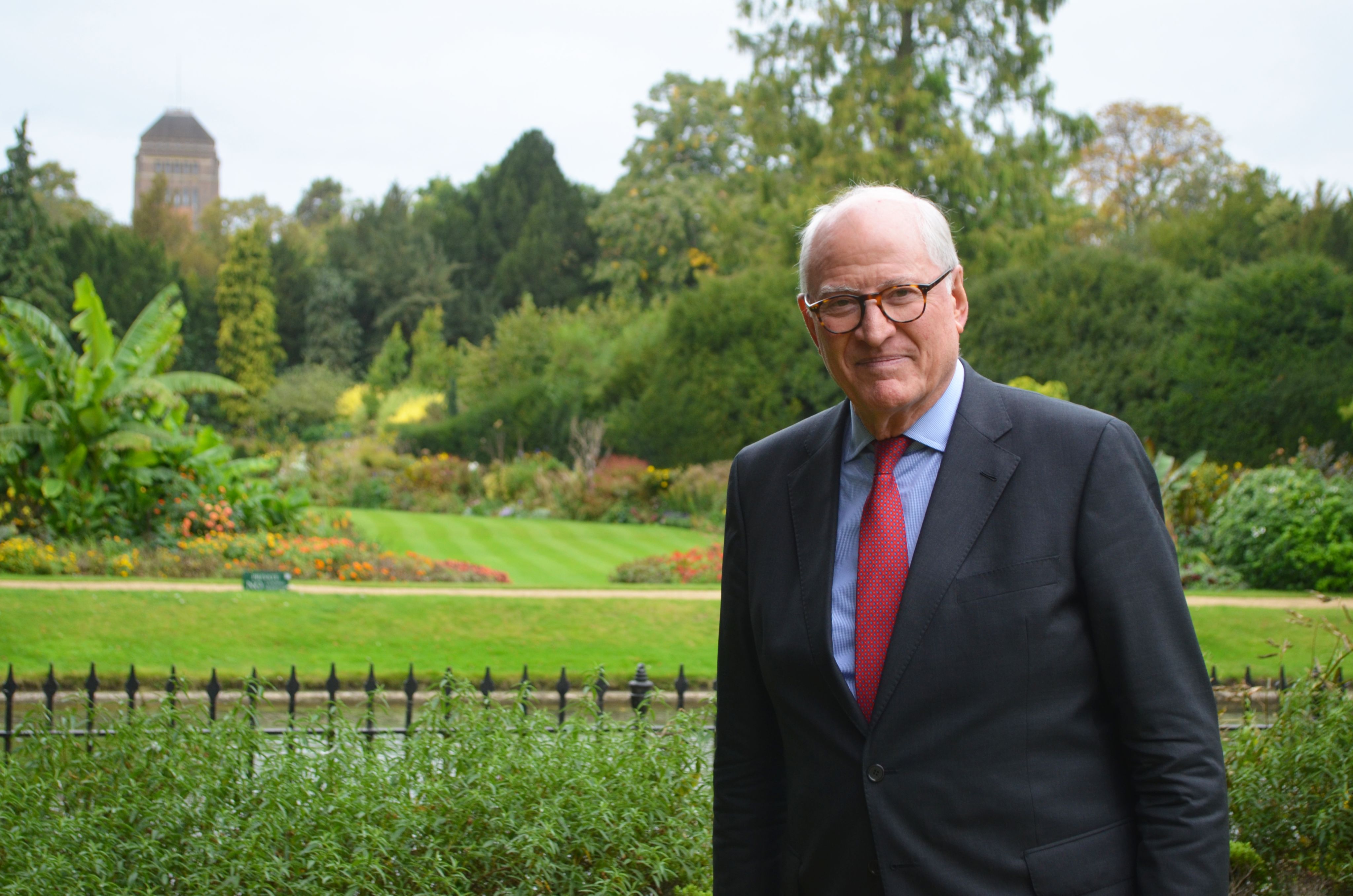Master's Welcome
Lord Anthony Grabiner QC

As I write – mid-August 2021 – my seven-year appointment as Master of Clare comes to an end in a few weeks’ time.
From the outset I was determined that it would be an enjoyable period of my life after full-time practice in the law for more years than I care to remember. In the event, I succeeded with that objective. I met and spent time with a wide range of very interesting people: Clare Fellows and other Cambridge academics, successive year groups of Clare students, University administrators, alumni, generous donors and, of course, our College staff, who were always supportive, loyal and extraordinarily hard-working.
In these notes I’d like to address three points: College finances, academic challenges and COVID-19.
As to the financial position, I would particularly wish to thank Paul Warren, our Bursar, and the Investment Committee. Paul retires at the end of September. In his eight years as Bursar he has managed to double the value of Clare’s endowment. In an uninterrupted period of low interest rates, that is a remarkable achievement. The inherent challenge with the College endowment is that, for historical reasons, a significant portion of the total is restricted to specified objectives, which cannot be used for general purposes. The figures are revealing: as of 30 June 2021 the unrestricted element of the endowment was £56.5 million out of a total endowment asset value of £152 million. By working to increase the proportion of unrestricted funds available to us, the College will be able to operate far more nimbly and responsively as circumstances demand. This fact has been thrown into even sharper relief by the uncertainty of recent times.
The pandemic has taken its toll on the financial health of the College. We have lost two years’ worth of valuable vacation conference revenue, and it may take some time before we can, once again, derive cash flow from our excellent conference facilities. It is also the case that students, who have not been in College accommodation because of COVID-19 precautions, have very properly not been charged for the rooms they haven’t occupied.
Despite these challenges, we have completed the first phase of the Old Court refurbishment, and the second phase is well advanced. Thanks to the work of the Old Court Working Party and the Campaign Board, careful financial planning and the generosity of our donors, the costs associated with these phases can be met. There is a third phase to come, which will be subjected to thorough financial scrutiny before it proceeds. At the time of writing we have so far raised over £19 million towards the target figure of £25 million from donations, and I am very hopeful that we will achieve our goal in the near future. Thank you to every one of you that has made thedecision to support Clare. Your donations, no matter the size, are so invaluable in allowing the project to move forward, as well as facilitating the everyday running of our College.
I should also give particular thanks to Dr Alan Gillespie as Co-chair of the Campaign Board and as a most generous donor to the fundraising for Old Court. His dedication to supporting the life of the College is truly appreciated.
On the academic front there have been some serious challenges. In 2020 prospective students faced significant disruption in receiving their examination results. Clare honoured additional offers, which meant our cohort of Freshers was larger than normal. Nevertheless, thanks to the efforts of the Senior Tutor, the Admissions Tutors and the Fellows, our academic standards have remained unaffected. Through the use of University tests and interviews, and our first-class outreach and widening participation work, we continue to seek the strongest candidates, irrespective of background.
More generally, this is a tough time for young people leaving school or university for the start of their working lives. Many, if not most, employers are looking for team players who are ready, willing and able to co-operate with one another, frequently in a demanding and stressful environment.
The University should, I think, be a place for intellectual challenge and for learning to work with and be supportive of others: these are essential life lessons, which I’m pleased to say are well understood and respected by our students at Clare College.
COVID-19 has, of course, been a huge challenge for all of us. It has forced us to devise alternative ways of delivering teaching. Lectures have been given online, as have many supervisions and tutorials. We have rapidly adapted to events with Zoom and Teams technologies.
I suspect that some of these new ways of working will endure even beyond the pandemic. Online lecture content is easily updated and, from the student perspective, the ability to control the flow of information and the timing of its delivery has many advantages. That said, I think it is essential that we strive to safely re-establish face-to-face interaction as much as possible. Meeting and speaking with teachers and fellow students is a vital part of education and the human experience, and the loneliness of bare walls and a computer screen should be kept to a minimum.
I particularly want to thank Lee Corke and our catering team, Helen James and Esther Manning, who continue to do such vital work at Clare’s Health & Wellbeing Service, and all our College staff for the extraordinary and excellent way they have coped with this very stressful and difficult period.
I should also thank the Fellows and the College Officers – Dr Jackie Tasioulas, our Senior Tutor; Prof Simon Franklin, President of the Fellowship; Prof Jonathan Goodman, our Academic Dean; and Paul Warren, the Bursar – for their constant help, support and commitment to the College.
I welcome my successor, Loretta Minghella, who begins her term of office on 1 October, and I wish her well.

Lord Grabiner QC
Master of Clare College, 2014–2021

